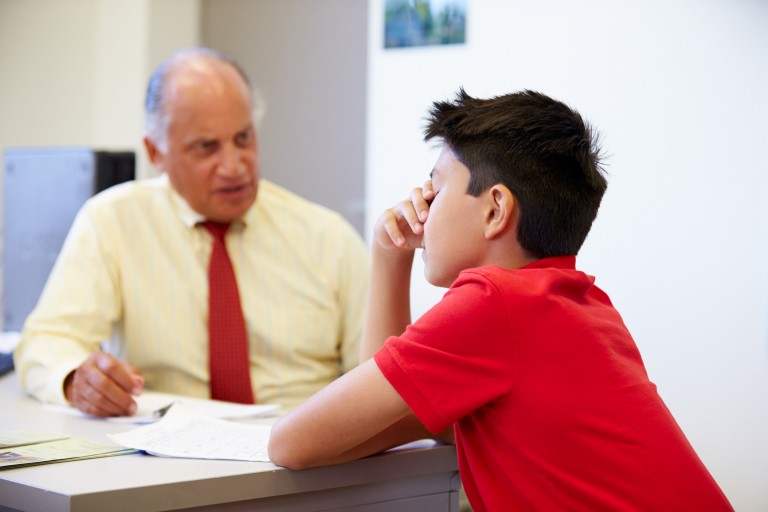Brian H. Smith Ph.D.
Senior Research Scientist
(This blog was first posted on the website of Academy for Social-Emotional Learning in Schools)
One of the central injustices in the US education system is the disproportionately low educational attainment of minority students. This achievement gap has many causes that are outside the reach of schools, including the impacts of poverty and racism on child development. But recent research has found a key factor that schools do control: higher levels of suspension and expulsion for minority students is the source of fully one fifth of the achievement gap.

Being suspended or expelled directly disrupts students’ learning and weakens their connection to school, and research shows all students do worse in schools with higher levels of exclusionary discipline.
Suspension rates have doubled since the 1970’s and really took off in the 1990’s as schools embraced zero tolerance policies- an approach that criminalizes but does not reduce misbehavior
Zero tolerance-based punitive discipline is a failed approach that harms the education of millions of students, especially the most disadvantaged. But there are effective alternatives.
Proactive preventive approaches, such as the increasingly widely used Positive Behavior Interventions and Support (PBIS), set clear expectations and directly teach students how to meet them. When problems do occur, schools can use Restorative Practices to rebuild connections, keep students in school and contribute to a positive school climate. These approaches fulfill two of the key principles of Character Education: providing students with opportunities for moral action and creating a caring school community.
But for these approaches to be fully successful, students need the skills to shape their behavior to meet expectations and to actively participate in community building. These competencies are effectively built through Social Emotional Learning (SEL).
Clear expectations and fair consequences only work when students have the ability to choose how they behave. That requires self-regulation, emotion knowledge, and social skills- the competencies that are taught through SEL. Social and emotional competence prepares young children for the intellectual and social challenges of the formal school environment. Children who receive SEL interventions not only behave better in school but also get better test scores and grades.
The Restorative Practices that build positive school climate and healthy relationships also depend on the foundation provided by SEL: students’ abilities to take other’s perspectives, be aware of their own thoughts and feelings, communicate and solve problems.
We cannot punish our way to better schools and better outcomes for students. Doing away with zero tolerance and suspension and expulsion in favor of SEL and proactive approaches that help create healthy school climates will decrease the achievement gap while benefitting all students.
